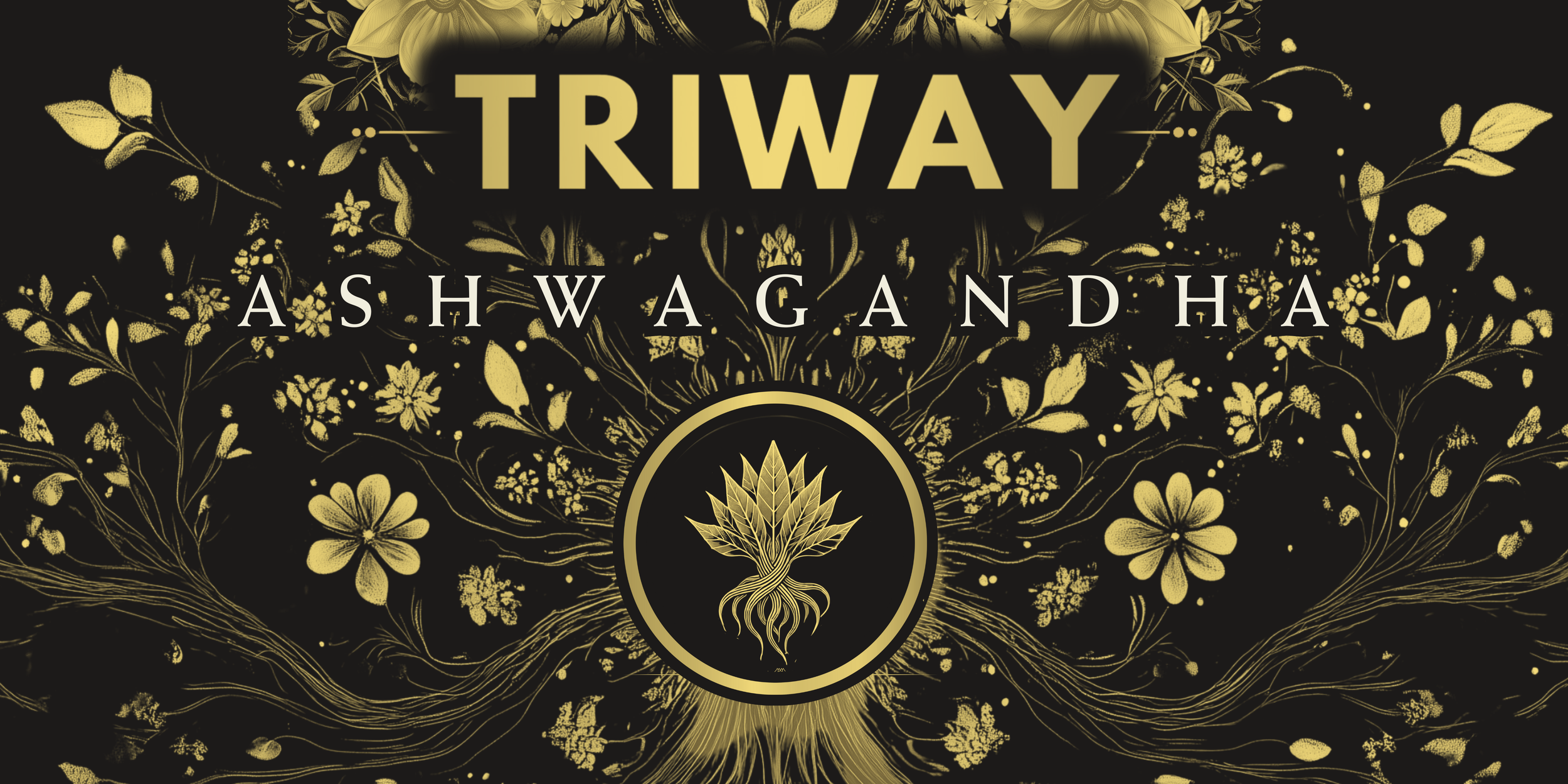Ashwagandha: A Time-Honored Adaptogen for Holistic Wellness
1. Introduction
In today’s fast-paced world, maintaining holistic well-being is more important than ever. Ashwagandha (Withania somnifera) has been traditionally used in various wellness practices and has been studied for its potential role in stress adaptation, cognitive function, and overall vitality.
At TriWay, we incorporate science-backed adaptogens like Ashwagandha into our product offerings, aligning with our Triángulo de la Salud approach, which considers physical, mental, and social balance. While research on Ashwagandha is promising, further clinical studies are needed to confirm certain claims, and individuals should be aware of potential side effects.
This article explores:
- The history and traditional applications of Ashwagandha.
- Scientific research on its bioactive compounds.
- How Ashwagandha aligns with holistic wellness approaches.
2. History and Traditional Use of Ashwagandha
Ashwagandha has been a staple in Ayurvedic traditions for over 3,000 years. Its Sanskrit name translates to "smell of the horse", referencing its distinctive aroma and historical association with strength and vitality.
Cultural Applications:
- Ancient India: Traditionally used as a Rasayana (rejuvenating tonic) in Ayurveda.
- Persian Traditions: Incorporated for stress adaptation and overall well-being.
- Greek Wellness Practices: Used for relaxation and cognitive support.
This deep-rooted history highlights Ashwagandha’s long-standing role in traditional health practices.
3. Bioactive Compounds and Mechanisms of Action
Ashwagandha contains bioactive compounds that have been the focus of modern research.
Key Active Compounds:
- Withanolides: Studied for their role in stress adaptation.
- Alkaloids: Researched for their potential antioxidant properties.
- Saponins: Investigated for their relationship with immune function.
Potential Mechanisms of Action:
- Cortisol Regulation: Some research explores its impact on stress response mechanisms.
- Neurotransmitter Support: Studies suggest it may influence dopamine and serotonin balance.
- Cellular Energy Production: Examined for its role in mitochondrial health.
While these mechanisms provide insight, further clinical validation is required to determine specific effects.
4. Research on Ashwagandha
Scientific studies have examined Ashwagandha’s properties, though additional human trials are necessary to confirm its long-term effects.
1. Stress and Well-Being
- Some research suggests Ashwagandha may be associated with stress adaptation and relaxation. (Chandrasekhar et al., 2012)
2. Cognitive Function
- Studies have explored its role in memory and mental clarity. (Choudhary et al., 2017)
3. Physical Performance
- Research has examined its relationship with endurance and recovery. (Raut et al., 2012)
4. Sleep and Relaxation
- Some findings indicate possible associations with sleep quality. (Kumar et al., 2021)
While these studies offer insights, further research is required to establish definitive conclusions.
5. Dosage, Safety, and Considerations
Common Forms of Ashwagandha:
- Standardized Extracts: Often 300–600 mg/day.
- Powder (Churna): Typically mixed into warm beverages.
- Tinctures & Capsules: Concentration varies by formulation.
Potential Side Effects & Considerations:
- Some individuals may experience digestive discomfort or drowsiness.
- May interact with certain medications affecting blood pressure and thyroid function.
- Pregnancy & Breastfeeding: Use should be discussed with a healthcare professional.
Adaptogen Combinations:
- Rhodiola Rosea: Studied for stress adaptation.
- Bacopa Monnieri: Examined for memory support.
- Shilajit: Explored for physical resilience.
6. Ashwagandha in TriWay’s Wellness Model
At TriWay, Ashwagandha aligns with our Triángulo de la Salud framework by supporting:
- Physical Well-Being: Explored for its potential role in energy and recovery.
- Mental Balance: Studied for its association with focus and stress resilience.
- Social Vitality: May contribute to emotional well-being.
Additionally, our e-commerce platform provides:
- A product gallery featuring adaptogen-based formulations.
- Exclusive wellness events through NFT access.
- A health-focused community centered on holistic well-being.
7. Conclusion
Ashwagandha has a rich history and continues to be explored in scientific research. While some studies suggest potential wellness applications, further research is necessary to confirm certain findings.
At TriWay, we emphasize a science-driven approach, respecting both traditional wisdom and modern research. When incorporated into a balanced lifestyle, Ashwagandha may serve as a complementary element in holistic well-being.
8. References
- Chandrasekhar, K., Kapoor, J., & Anishetty, S. (2012). "A randomized, double-blind, placebo-controlled study on Ashwagandha and stress." Indian Journal of Psychological Medicine, 34(3), 255-262.
- Choudhary, D., Bhattacharyya, S., & Joshi, K. (2017). "Effects of Ashwagandha on cognitive function." Journal of Dietary Supplements, 14(6), 599-612.
- Kuboyama, T., Tohda, C., & Komatsu, K. (2009). "Neuroprotective effects of Ashwagandha." Phytotherapy Research, 23(6), 802-813.
- Raut, A. A., Rege, N. N., et al. (2012). "Exploring the role of Ashwagandha in physical performance." Journal of Ethnopharmacology, 142(2), 292-302.
